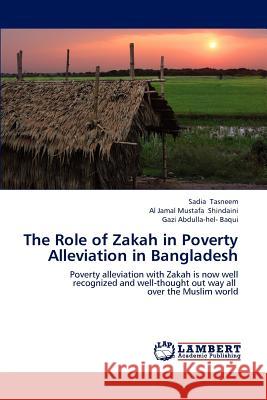The Role of Zakah in Poverty Alleviation in Bangladesh » książka
The Role of Zakah in Poverty Alleviation in Bangladesh
ISBN-13: 9783659197611 / Angielski / Miękka / 2012 / 88 str.
While various policies have been taken in the last few decades to mitigate the threat of poverty, the role of Zakah is addressing the problem of poverty. Poverty alleviation with Zakah is now well recognized and well-thought out way all over the Muslim world. The present study has been conducted to find out whether Zakah has the power to alleviate the poverty or not in Bangladesh which is a country with more than 40% population living below the poverty line. It is also found that, poor with certain level of income and without indebtedness can improve their livelihoods after proper utilization of Zakah. This paper examines the role of Zakah in poverty alleviation using both secondary and primary data. Primary data are collected to describe the condition of Zakah receivers of study area. Emphasis has been mainly given to see how Zakah can fulfil its objectives by meeting the essential needs of the destitute and enhance the income generation of the poor. It can also help distribute wealth equally. The paper believes that policy actions on these lines will alleviate poverty on sustainable basis.
While various policies have been taken in the last few decades to mitigate the threat of poverty, the role of Zakah is addressing the problem of poverty. Poverty alleviation with Zakah is now well recognized and well-thought out way all over the Muslim world. The present study has been conducted to find out whether Zakah has the power to alleviate the poverty or not in Bangladesh which is a country with more than 40% population living below the poverty line. It is also found that, poor with certain level of income and without indebtedness can improve their livelihoods after proper utilization of Zakah. This paper examines the role of Zakah in poverty alleviation using both secondary and primary data. Primary data are collected to describe the condition of Zakah receivers of study area. Emphasis has been mainly given to see how Zakah can fulfil its objectives by meeting the essential needs of the destitute and enhance the income generation of the poor. It can also help distribute wealth equally. The paper believes that policy actions on these lines will alleviate poverty on sustainable basis.











